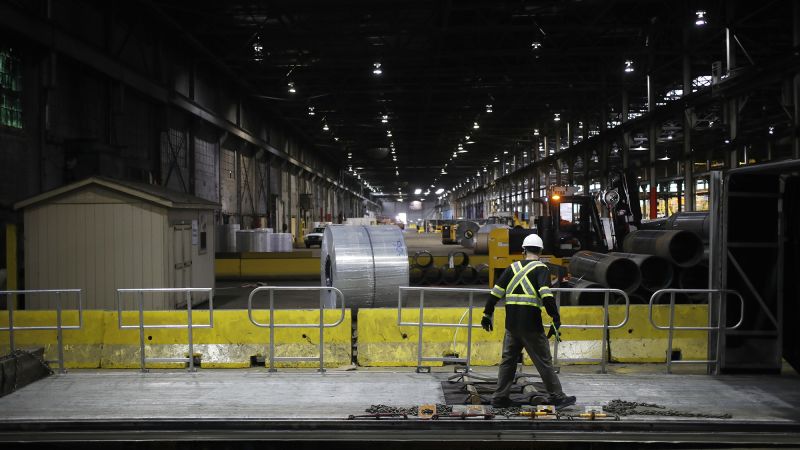“Tariff Takedown: Small Business on the Brink as Trump’s Trade War Looms Large
As the global economy teeters on the edge of uncertainty, one CEO’s stark warning serves as a chilling reminder of the devastating consequences of President Trump’s proposed tariffs. In a shocking statement that has sent shockwaves through the business world, a US CEO has boldly declared that his company will be out of business by the end of the year if the Trump tariffs come to fruition. The threat, made to CNN, highlights the very real fears of small business owners who are struggling to stay afloat in an increasingly treacherous economic landscape.
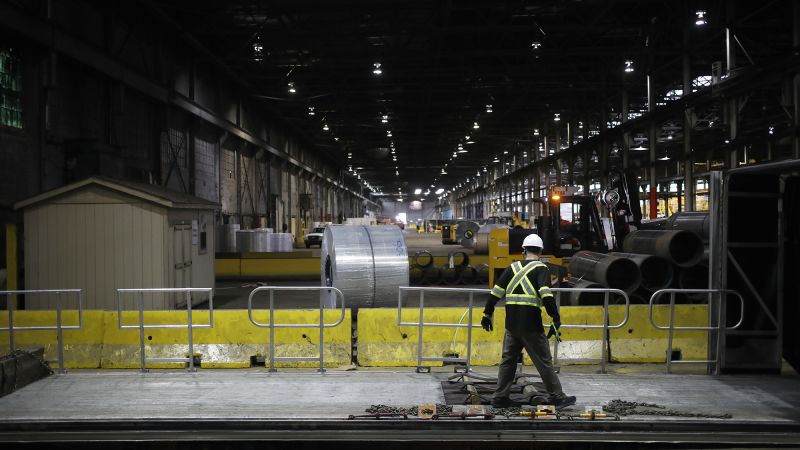
Industry Insights and Case Studies
The Auto Industry and Tariff Impacts on Production
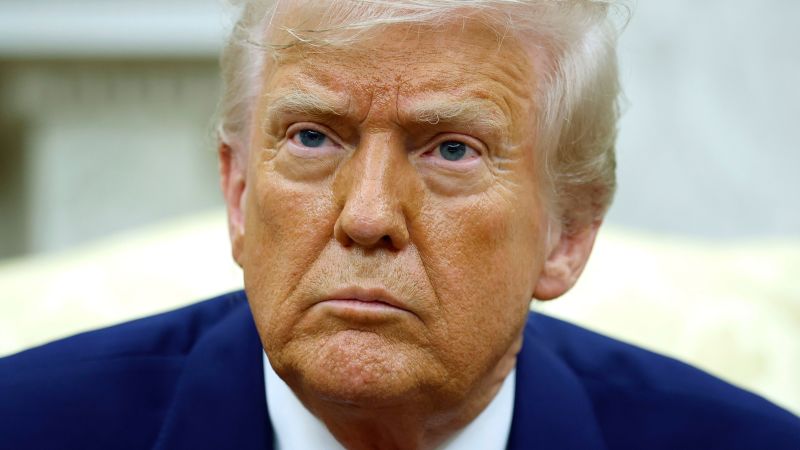
The auto industry is one of the most affected sectors by the proposed Trump tariffs. The automotive sector is heavily reliant on international supply chains, with parts and components often crossing borders multiple times before a car reaches the showroom. According to a report by the Center for Automotive Research, the average car in the United States contains over 2,000 parts sourced from around the world. The imposition of high tariffs threatens to disrupt these intricate supply chains, leading to increased costs and potentially higher prices for consumers.
The situation is exacerbated by the fact that the auto industry has been a key focus of the Trump administration’s tariff agenda, particularly targeting imports from China. The administration’s push for higher tariffs is aimed at reshoring production to the U.S., but this is a complex process that requires significant investment and time. For instance, a major car manufacturer may need to invest up to $1 billion to set up a new plant that can produce 100,000 vehicles per year, depending on the type of vehicle and technology used. This massive investment is not feasible without a long-term commitment to the policy environment, which is currently uncertain.

Aluminum Production and the Importance of Long-Term Planning
The aluminum industry is another sector that finds itself at the center of the tariff debate. Aluminum, a critical material for a range of applications from automotive parts to construction materials, is heavily affected by changes in global trade policies. The imposition of tariffs under the Trump administration has led to a surge in the price of aluminum. This affects not only the production costs for manufacturers but also the profitability of aluminum producers themselves.
The CEO of an aluminum producer has stated, “We make decisions around aluminum production that have a horizon of 20 to 40 years. We would not be making an investment in the United States based on a tariff structure that could be in place for a much shorter period of time.” This highlights the critical need for long-term certainty in the business environment to secure significant investments. The uncertainty over the duration and scope of tariffs is a major deterrent for investing in large-scale manufacturing facilities, which require substantial upfront costs and long-term planning.
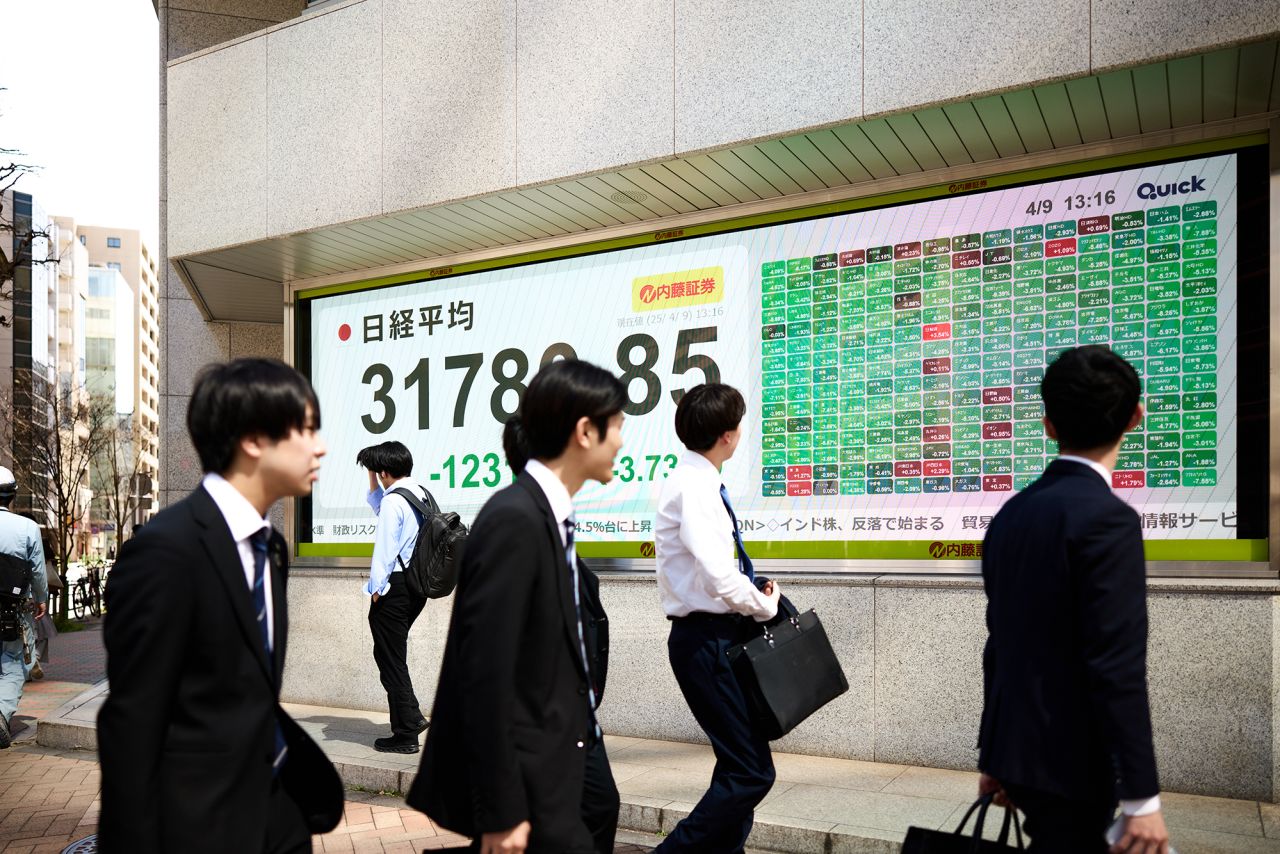
Examples of Companies Adapting to or Resisting Tariff Changes
Several companies have taken different approaches to navigate the complex landscape created by tariffs. Some have chosen to adapt by relocating production to the U.S. to avoid tariffs, while others have resisted by seeking exemptions or working to lobby against the imposition. For example, Ford Motor Company has announced plans to invest in electric vehicle production in the U.S. to capitalize on the shift towards greener technologies and to avoid the punitive tariffs on imported parts. Conversely, Tesla has sought and received exemptions for certain components, allowing it to maintain its production schedule and investment in the U.S. without the immediate cost increase that tariffs would impose.
The variability in how companies respond to the tariff changes reflects the diverse strategies in place. Companies that are more flexible and have a strong global presence are better equipped to adapt to changes in the tariff environment. However, smaller companies and those with less diversified operations may find it more challenging to adjust without incurring significant costs or restructuring their operations.
Global Trade and Geopolitical Dynamics
US-China Trade Relations and Escalating Tariffs
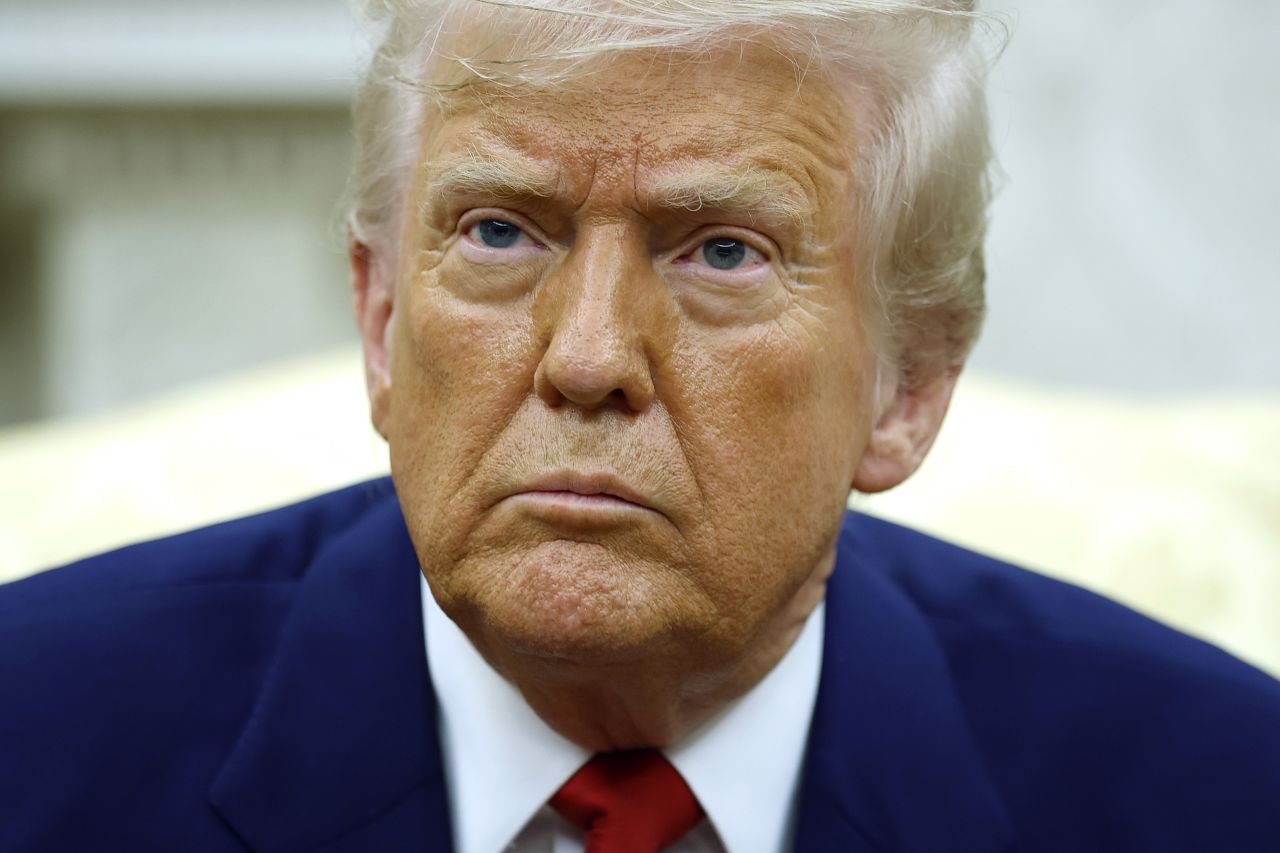
The US-China trade relations have been at the forefront of the global trade discussion, with tariffs imposed by both countries having significant impacts on international trade. The escalating tariffs between the U.S. and China have led to a complex web of trade restrictions and countermeasures. For instance, the U.S. has imposed tariffs up to 104% on Chinese goods, while China has retaliated with tariffs up to 84% on U.S. products. These actions have not only affected the economic relationship between the two countries but have also had ripple effects across other global markets.
Experts from the Peterson Institute for International Economics have estimated that these high tariffs could reduce U.S. GDP by 0.5% over a ten-year period, due to the increased costs and reduced competitiveness in the global market. The economic impact is not limited to the U.S. and China; other countries are also affected as they form part of the supply chains that connect the two major economies. The impact on global trade agreements and the overall stability of the international trade system are increasingly under scrutiny due to the unpredictability of these measures.
The Impact of Tariffs on International Trade Agreements
The imposition of tariffs has had a profound impact on international trade agreements. The World Trade Organization (WTO) has seen an increase in disputes filed by various countries challenging the legality of tariffs under international trade laws. The U.S. has faced significant criticism from the European Union, Canada, and Mexico, among others, for the unilateral actions that have led to retaliatory measures. This disruption to long-standing trade agreements has led to increased tensions and a push for renegotiating trade agreements that better reflect the current geopolitical and economic realities.
The uncertainty created by the constant changes in tariff levels and the lack of a stable policy framework has led to a decline in the predictability of the international trade environment. This unpredictability makes it challenging for businesses to plan long-term investments, particularly in industries that depend on global supply chains, such as the auto and electronics sectors. The WTO has expressed concerns that these actions could undermine the global trading system and lead to a fragmented world market with reduced economic cooperation.
Potential Consequences for Global Economic Stability and Cooperation
The global economic stability and cooperation are at risk due to the increasing use of tariffs as a policy tool. The escalation of tariffs has led to a decline in global trade volumes, as reported by the International Monetary Fund (IMF). The IMF has warned that the trade tensions could reduce global GDP by 0.5% over the next three years. This reduction in trade volumes is likely to impact not only the economies of the U.S. and China but also those of their trading partners and the global economy as a whole.
Geopolitical dynamics have also been affected, with countries increasingly looking to form or strengthen bilateral trade agreements as a countermeasure to the escalating tariffs. The European Union, for example, has sought to strengthen its trade relationships with other nations such as Japan and Canada, forming a kind of anti-tariff coalition. This shift towards bilateral agreements is a reaction to the perceived instability in the global multilateral trade system, driven by the U.S.’s actions under the Trump administration.
Business Strategies and Adaptation
Navigating Tariff Uncertainty and Supply Chain Risks
Businesses are employing various strategies to navigate the uncertain tariff environment and the associated risks to their supply chains. Companies are increasingly adopting a multi-faceted approach that includes diversifying suppliers, hedging against price increases, and investing in technology to improve efficiency. One common strategy is to establish backup suppliers in countries not affected by tariffs, thereby reducing dependence on any single country or region. For example, a leading electronics manufacturer has diversified its supplier base to include Southeast Asian countries, reducing the risk of significant disruptions caused by tariffs.
Technology is also playing a crucial role in mitigating the effects of tariffs. Companies are investing in automation and digital transformation to streamline operations and reduce costs. Advanced analytics and machine learning are being used to predict and manage tariff impacts more accurately. By leveraging big data, companies can make more informed decisions about the location of production and the sourcing of materials, thereby mitigating the risk of sudden tariff increases.
Investing in Domestic Manufacturing and Job Creation
One of the administration’s primary goals has been to encourage domestic manufacturing and job creation. Despite the ambitious rhetoric, the actual outcomes have been mixed. Companies like Ford have made significant investments in domestic manufacturing, aiming to capitalize on the promise of lower tariffs and the potential for high demand in the U.S. market. Ford’s commitment to investing $11 billion in electric vehicle production in the U.S. is a clear example of leveraging domestic production to avoid the impact of tariffs on imported materials.
However, these investments require significant upfront costs and long-term commitments. The uncertainty surrounding tariffs makes such investments risky. For example, a major producer of semiconductors, which relies heavily on imported materials, is currently reassessing its investment plans in the U.S. due to the unpredictability of the tariff environment. The company is considering a phased investment approach, focusing initially on smaller, more flexible operations that can be scaled up if the tariff situation stabilizes. This approach allows the company to adapt to changing circumstances without significant financial losses.
Diversification and Global Market Expansion as Tariff Mitigation Strategies
Companies are increasingly looking at diversification and market expansion as strategies to mitigate the impact of tariffs. Diversifying production and supply chains is a key strategy for reducing reliance on any single market or supply route. This strategy has been adopted by numerous companies, including auto manufacturers and electronics firms, which are building new plants in regions like Southeast Asia and Mexico to mitigate the risk of tariffs on Chinese goods. Diversification also helps these companies to tap into new markets and reduce the economic impact if one market’s conditions turn unfavorable.
Global market expansion through trade agreements is another strategy seen in the business world. Companies are looking to expand into untapped markets to offset the costs and risks associated with high tariffs. For instance, a leading technology company has expanded its operations into Vietnam and India, where it enjoys lower production costs and access to new markets, thereby reducing its dependency on exports to the U.S. and China. By expanding their reach, these companies are seeking to navigate the global economic landscape in a way that maximizes their economic gains and minimizes risks.
Conclusion
Conclusion: The Alarming Reality of Trump Tariffs and the Fate of a Business
The recent statement by a CEO, warning that his company will be out of business by the end of the year if Trump tariffs come to fruition, paints a stark picture of the devastating impact of protectionist policies on businesses and the economy. As highlighted in our article, the CEO’s concerns revolve around the crippling tariffs imposed by the Trump administration, which have already taken a significant toll on his company’s bottom line. The article sheds light on the unintended consequences of such policies, including higher production costs, reduced exports, and ultimately, the loss of jobs and businesses.
The significance of this topic cannot be overstated. The Trump tariffs have far-reaching implications for businesses, industries, and the broader economy. As the tariffs continue to escalate, businesses are forced to adapt, innovate, and re-strategize to survive. However, for many, it may be too late. The tariffs have already created a perfect storm of uncertainty, volatility, and risk, making it challenging for businesses to plan for the future. As we move forward, it is essential to consider the long-term consequences of such policies and the impact on economic growth, trade, and global competitiveness.
As we reflect on the alarming reality of Trump tariffs, one cannot help but wonder: what’s next for businesses and the economy? Will the tariffs continue to escalate, or will there be a reversal of fortunes? One thing is certain – the stakes are high, and the consequences of inaction will be far-reaching. As we conclude, the question remains: will the economy be able to withstand the weight of protectionist policies, or will the damage be irreparable? The clock is ticking, and the fate of businesses and the economy hangs precariously in the balance.
